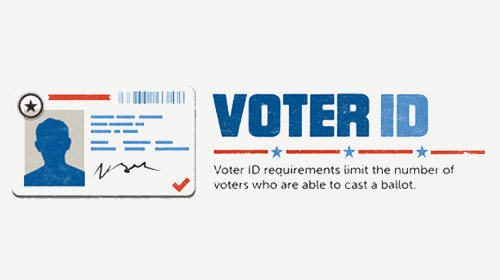Seventh Circuit Hears Oral Arguments in Wisconsin Voter ID Case
FOR IMMEDIATE RELEASE
CONTACT: 212-549-2666, media@aclu.org
CHICAGO — The Seventh Circuit Court of Appeals heard oral arguments today involving Wisconsin's voter ID law. The American Civil Liberties Union presented arguments asking the court to uphold an April 29 federal court ruling striking down the law as unconstitutional and in violation of Section 2 of the Voting Rights Act. The three-judge appeals panel consisted of Frank Easterbrook, Diane Sykes, and John Daniel Tinder.
"Protecting the integrity of our elections is essential for a healthy democracy," said Dale Ho, director of the ACLU's Voting Rights Project, who argued the case. "Forcing voters to navigate unjustified obstacles as they try to cast a ballot is an affront to this fundamental belief. The people deserve better."
More about this case:
Wisconsin passed a voter ID law in 2011. The ACLU challenged the law on behalf of numerous Wisconsin voters, charging the measure violated the U.S. Constitution and Section 2 of the Voting Rights Act, which bans voting practices that have a disparate negative impact on racial minorities. The lawsuit, Frank v. Walker, was filed in the U.S. District Court for the Eastern District of Wisconsin.
At trial last November, the ACLU presented evidence showing that hundreds of thousands of Wisconsin voters lacked ID; that African-American and Latino voters, who have been subjected to historical and continuing segregation and discrimination in Wisconsin, were far more likely to lack ID and the documents needed to get ID than whites; that there are significant burdens imposed on voters trying to get ID; and that the government lacks strong enough reason to impose these burdens.
Among the plaintiffs is Shirley Brown, an African-American woman in her 70s who was born at home in Louisiana and never had a birth certificate. Brown, who has voted in Wisconsin for decades, was denied an ID because she did not have a birth certificate. DMV rejected a statement from her elementary school attesting to her birth, even though Medicare accepted the statement. Another voter, Eddie Lee Holloway Jr., was unable to get ID because his birth certificate read "Eddie Junior Holloway" instead of "Eddie Lee Holloway Junior."
On April 29, 2014, a federal court struck down the law; the state appealed




